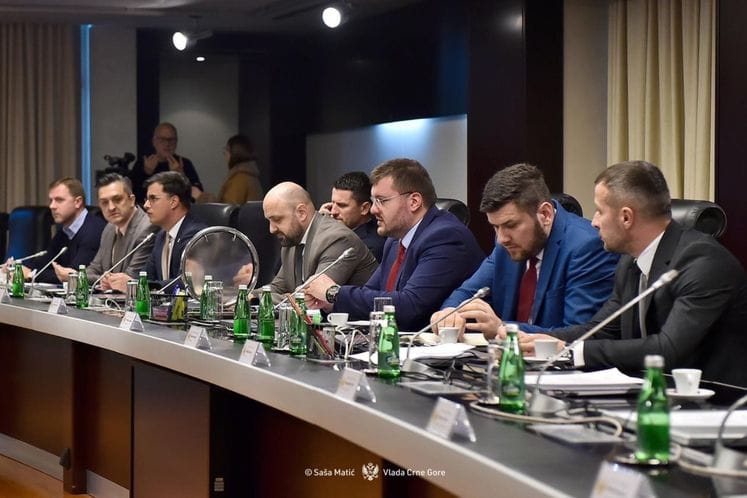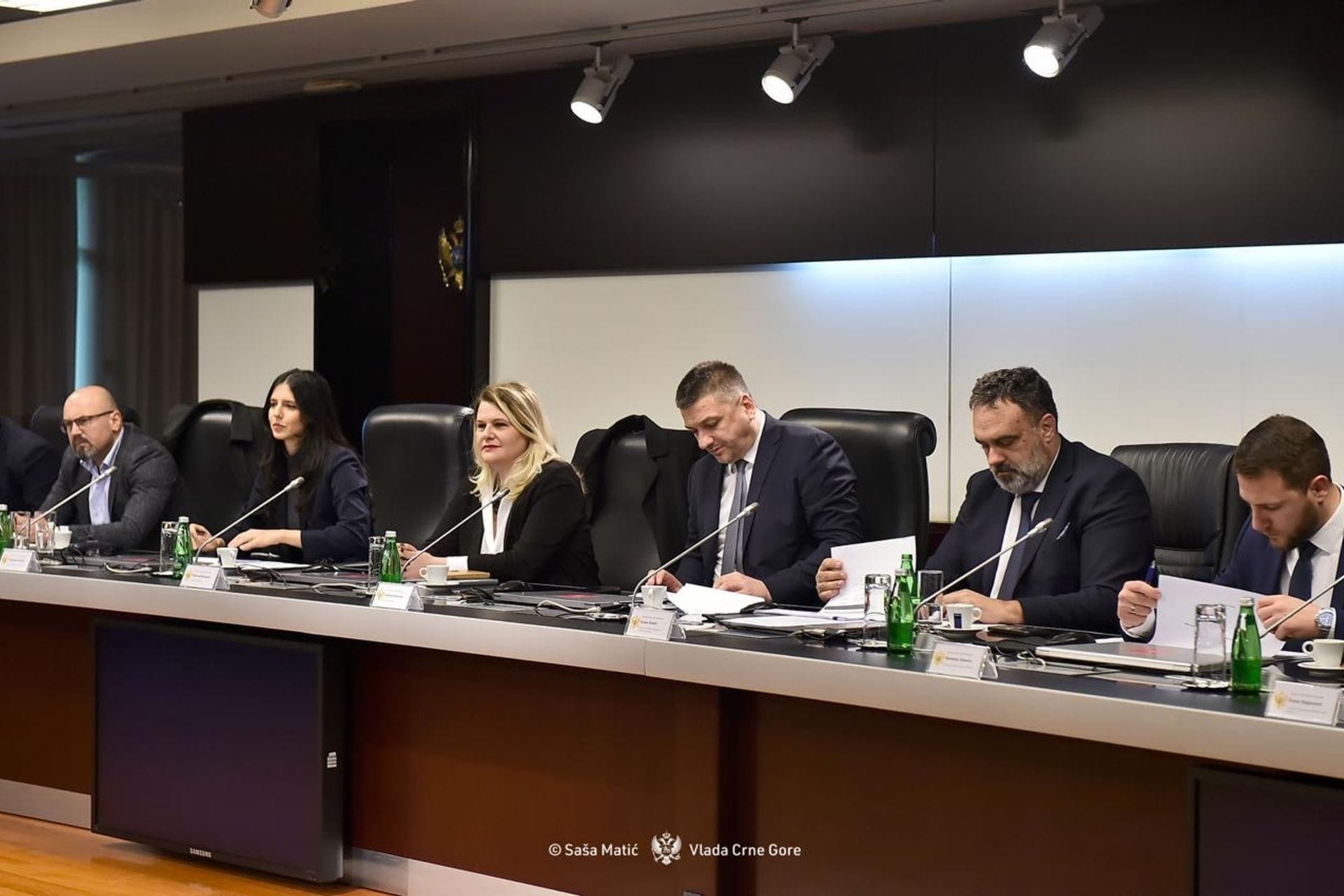- Government of Montenegro
National Council for the Fight against Corruption ...
National Council for the Fight against Corruption holds its third session

The third session of the National Council for the Fight against Corruption was held, focusing on key challenges in combating corruption, progress achieved so far, and plans for improving prevention and sanctioning mechanisms.
Council members discussed priority measures to strengthen the institutional response to corruption, with particular emphasis on enhancing institutional transparency, improving oversight mechanisms, and fostering more effective cooperation with domestic and international partners. Existing legal frameworks were also analyzed, identifying areas where further regulatory and institutional capacity improvements are needed.
Special attention was given to the development of a regulatory framework that would enable systematic oversight of lifestyle, income, and assets of inspectors. This initiative aims to ensure their professional and ethical accountability while also purging institutions of corrupt practices. Such measures would enhance public trust in oversight bodies and reduce opportunities for abuse.
The session also addressed Montenegro's involvement in the Istanbul Anti-Corruption Action Plan, an international mechanism for strengthening anti-corruption policies. This initiative involves an in-depth assessment of the system, sharing of best practices, and regulatory improvements aligned with international standards. The Council emphasized the importance of this process in reinforcing institutional resilience against corruption and deepening cooperation with international partners.
A key topic of discussion was the implementation of recommendations from the Group of States against Corruption (GRECO). It was agreed that the Action Plan would define concrete steps for implementing these recommendations. This process is crucial for harmonizing Montenegro’s legal framework with European standards and strengthening integrity in the public sector.
Additionally, conclusions, recommendations, and directions were established concerning the introduction of anti-corruption conditions, restrictions, and vetting processes for individuals in the highest executive positions. In line with GRECO’s recommendations, these measures aim to strengthen integrity and prevent individuals who have violated anti-corruption laws from holding such positions again. This reflects Montenegro’s strong reform commitment to eliminating all forms of corruption and abuse.
The National Council for the Fight against Corruption reiterated the importance of the consistent implementation of the Anti-Corruption Strategy and its accompanying Action Plan, with continuous monitoring of their execution, which is already underway. It was agreed that efforts to strengthen prevention, oversight, and sanctioning mechanisms would be intensified in the coming period to further improve the institutional framework and ensure the effective application of anti-corruption measures.
The Council will continue to monitor the implementation of these and other initiatives aimed at strengthening integrity, accountability, and the rule of law. It will remain a key forum for coordinating activities in this field, including organizing thematic sessions to address areas with the highest corruption risks and identify concrete methods for combating corruption effectively.

